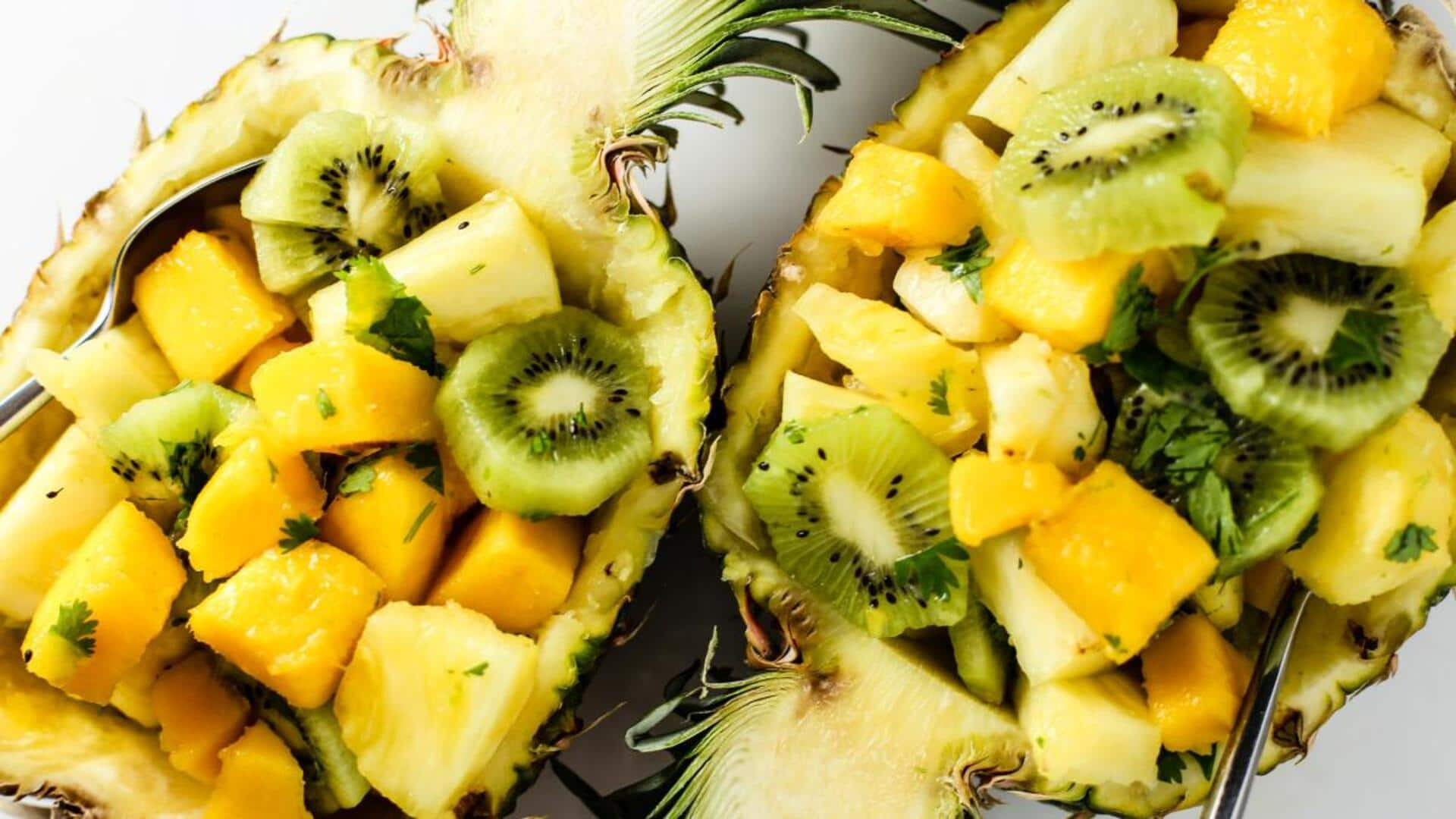
Pineapple v/s Kiwi: Which is the better vitamin C source?
What's the story
Pineapple and kiwi are two of the most popular tropical fruits, known for their unique flavors and nutritional benefits. Both are rich in vitamin C, an essential nutrient that supports immune function and skin health. This article delves into the vitamin C content of pineapple and kiwi, comparing their nutritional profiles to see which fruit offers more of this vital vitamin.
#1
Vitamin C content in pineapple
Pineapple is a delicious tropical fruit that is loaded with vitamin C. A serving of 100 grams of pineapple offers around 47.8 mg of vitamin C. This accounts for about 53% of the daily recommended intake for adults. Pineapple also has bromelain, an enzyme that may help with digestion and reduce inflammation. Its sweet and tangy flavor makes it a great addition to both sweet and savory dishes.
#2
Vitamin C content in kiwi
Kiwi is another powerhouse of vitamin C, offering more than most other fruits. A 100-gram serving of kiwi has around 92.7 mg of vitamin C, which is about 103% of the daily recommended intake for adults. Kiwi is also rich in fiber, vitamin K, and vitamin E, making it a great choice for those looking to boost their overall nutrient intake.
#3
Other nutritional benefits of pineapple
Apart from being a good source of vitamin C, pineapple also offers other health benefits. It is rich in manganese, which is important for bone health and metabolism. Pineapple also has antioxidants that protect cells from damage by free radicals. The bromelain in pineapple may help reduce swelling after surgery or injury when consumed regularly as part of a balanced diet.
#4
Other nutritional benefits of kiwi
Kiwi does not just provide a high dose of vitamin C but is also loaded with other essential nutrients such as potassium and folate. Potassium helps maintain healthy blood pressure levels, while folate supports cell division and DNA synthesis processes in the body. The high fiber content of kiwi also promotes digestion by adding bulk to stool, preventing constipation when eaten regularly over time as part of an overall balanced diet plan.